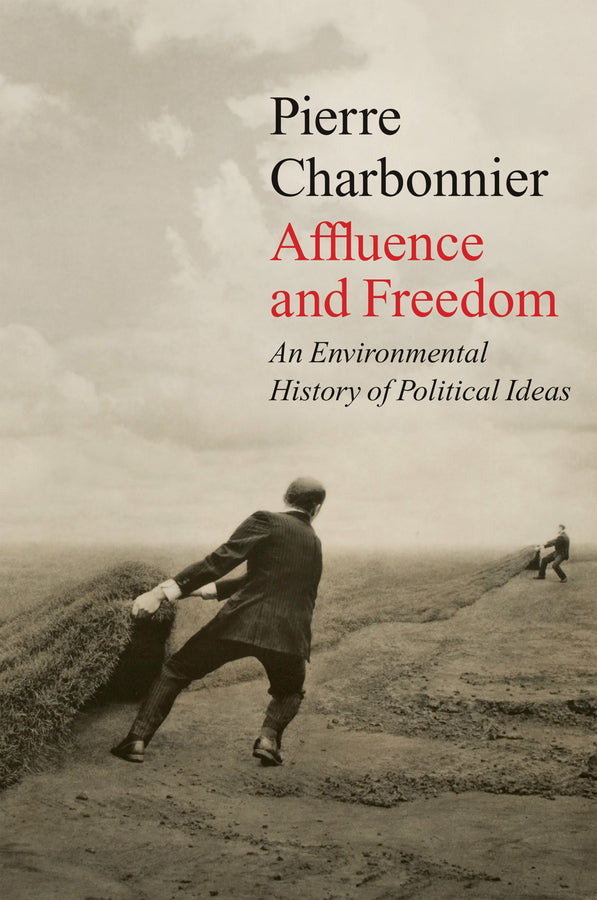Description
Explore a fascinating blend of environmental history and political ideas in this groundbreaking volume by Pierre Charbonnier. In 328 captivating pages, Charbonnier invites readers to rethink humanity's relationship with the Earth through the lens of political theory. Unlike other works that seek to find roots of ecological thought in political history, this book boldly asserts that all political ideas inherently reflect a vision of our environment.
Dive into the complexities of the political categories of modernity, which were originally founded on the belief in conquering nature and endlessly utilizing Earth's resources. Charbonnier compellingly examines how this ideology has been challenged by contemporary climate change and the urgent global environmental crisis.
This essential text argues for a necessary reevaluation of political emancipation, marking a departure from the flawed promises of infinite growth associated with industrial capitalism. He urges a synthesis of ecology and the principles of nineteenth-century socialism to forge a path towards a sustainable future, where social solidarity is paramount amidst environmental upheaval.
Ideal for scholars, students, and anyone interested in the intersection of politics, sociology, and environmental studies, this book is a vital addition to discussions on modern political theories and ecological responsibility.
Note: Shipping for this item is free. Please allow up to 6 weeks for delivery. Once your order is placed, it cannot be cancelled. Brand new condition. ISBN: 9781509543724, Year: 2021, Publisher: John Wiley & Sons (UK).
Note: Shipping for this item is free. Please allow up to 6 weeks for delivery. Once your order is placed, it cannot be cancelled.
Condition: BRAND NEW
ISBN: 9781509543724
Year: 2021
Publisher: John Wiley & Sons (UK)
Pages: 328
Description:
In this pathbreaking book, Pierre Charbonnier opens up a new intellectual terrain: an environmental history of political ideas. His aim is not to locate the seeds of ecological thought in the history of political ideas as others have done, but rather to show that all political ideas, whether or not they endorse ecological ideals, are informed by a certain conception of our relationship to the Earth and to our environment.
The fundamental political categories of modernity were founded on the idea that we could improve on nature, that we could exert a decisive victory over its excesses and claim unlimited access to earthly resources. In this way, modern thinkers imagined a political society of free individuals, equal and prosperous, alongside the development of industry geared towards progress and liberated from the Earth™s shackles. Yet this pact between democracy and growth has now been called into question by climate change and the environmental crisis. It is therefore our duty today to rethink political emancipation, bearing in mind that this can no longer draw on the prospect of infinite growth promised by industrial capitalism. Ecology must draw on the power harnessed by nineteenth-century socialism to respond to the massive impact of industrialization, but it must also rethink the imperative to offer protection to society by taking account of the solidarity of social groups and their conditions in a world transformed by climate change.
This timely and original work of social and political theory will be of interest to a wide readership in politics, sociology, environmental studies and the social sciences and
Dive into the complexities of the political categories of modernity, which were originally founded on the belief in conquering nature and endlessly utilizing Earth's resources. Charbonnier compellingly examines how this ideology has been challenged by contemporary climate change and the urgent global environmental crisis.
This essential text argues for a necessary reevaluation of political emancipation, marking a departure from the flawed promises of infinite growth associated with industrial capitalism. He urges a synthesis of ecology and the principles of nineteenth-century socialism to forge a path towards a sustainable future, where social solidarity is paramount amidst environmental upheaval.
Ideal for scholars, students, and anyone interested in the intersection of politics, sociology, and environmental studies, this book is a vital addition to discussions on modern political theories and ecological responsibility.
Note: Shipping for this item is free. Please allow up to 6 weeks for delivery. Once your order is placed, it cannot be cancelled. Brand new condition. ISBN: 9781509543724, Year: 2021, Publisher: John Wiley & Sons (UK).
Note: Shipping for this item is free. Please allow up to 6 weeks for delivery. Once your order is placed, it cannot be cancelled.
Condition: BRAND NEW
ISBN: 9781509543724
Year: 2021
Publisher: John Wiley & Sons (UK)
Pages: 328
Description:
In this pathbreaking book, Pierre Charbonnier opens up a new intellectual terrain: an environmental history of political ideas. His aim is not to locate the seeds of ecological thought in the history of political ideas as others have done, but rather to show that all political ideas, whether or not they endorse ecological ideals, are informed by a certain conception of our relationship to the Earth and to our environment.
The fundamental political categories of modernity were founded on the idea that we could improve on nature, that we could exert a decisive victory over its excesses and claim unlimited access to earthly resources. In this way, modern thinkers imagined a political society of free individuals, equal and prosperous, alongside the development of industry geared towards progress and liberated from the Earth™s shackles. Yet this pact between democracy and growth has now been called into question by climate change and the environmental crisis. It is therefore our duty today to rethink political emancipation, bearing in mind that this can no longer draw on the prospect of infinite growth promised by industrial capitalism. Ecology must draw on the power harnessed by nineteenth-century socialism to respond to the massive impact of industrialization, but it must also rethink the imperative to offer protection to society by taking account of the solidarity of social groups and their conditions in a world transformed by climate change.
This timely and original work of social and political theory will be of interest to a wide readership in politics, sociology, environmental studies and the social sciences and

